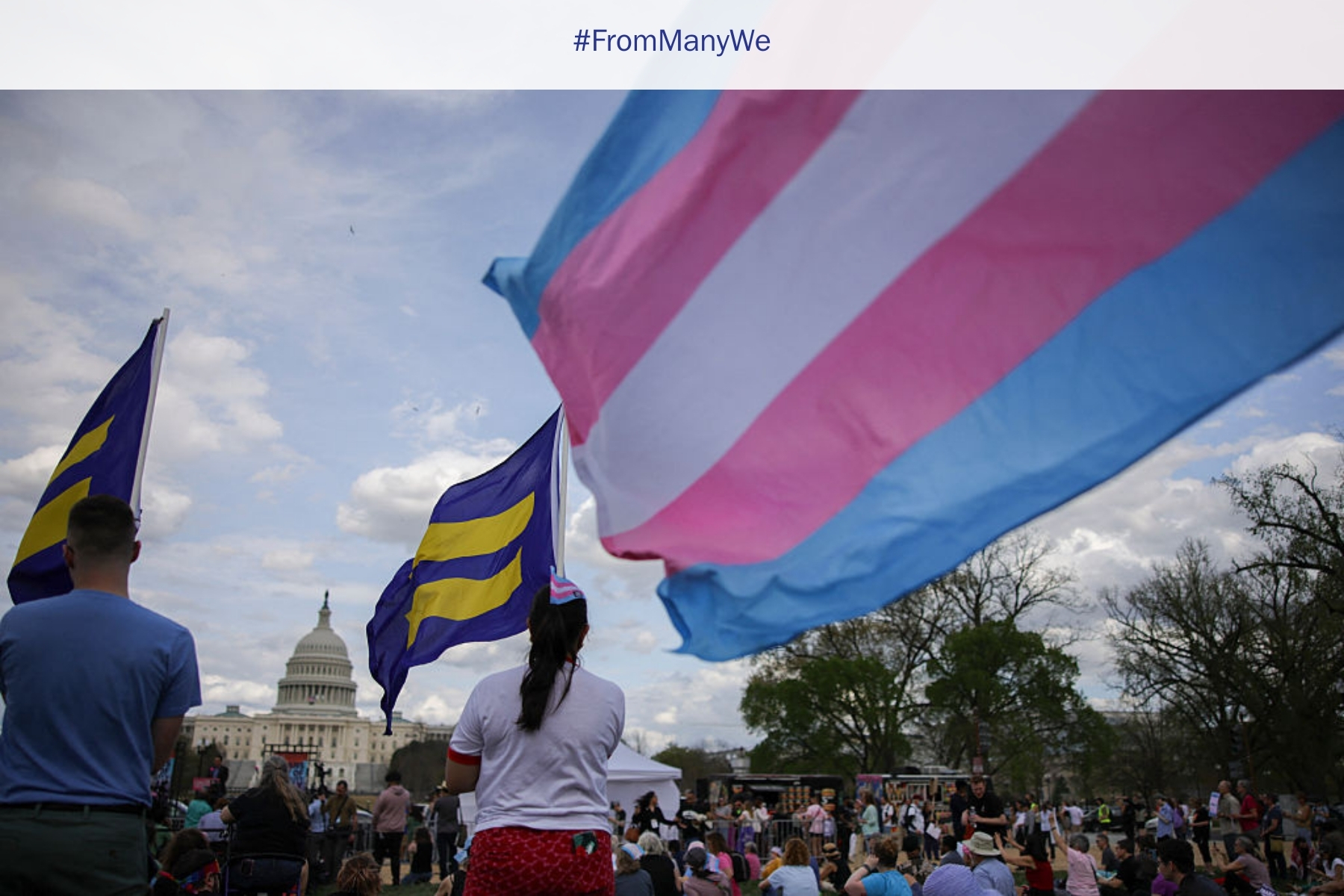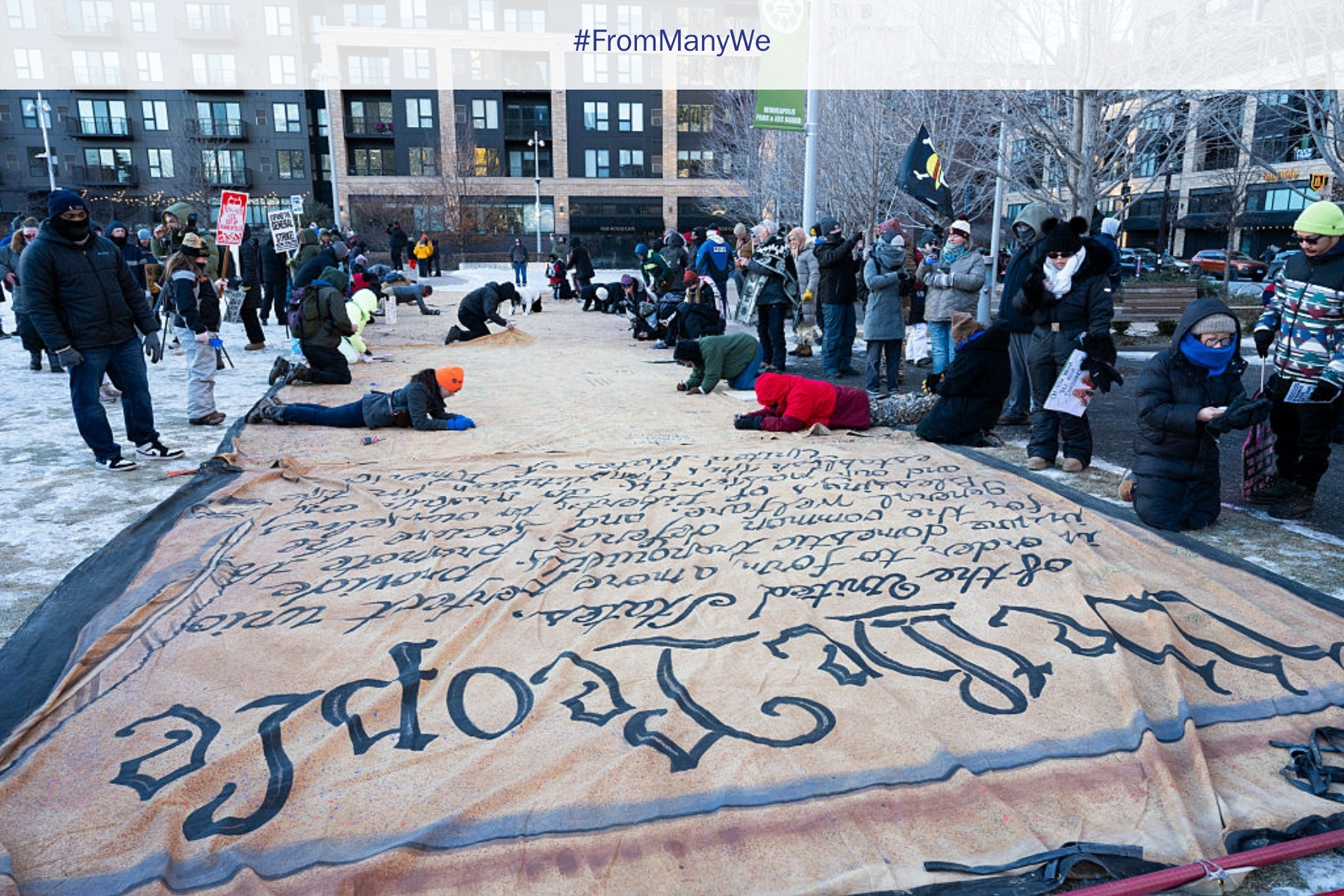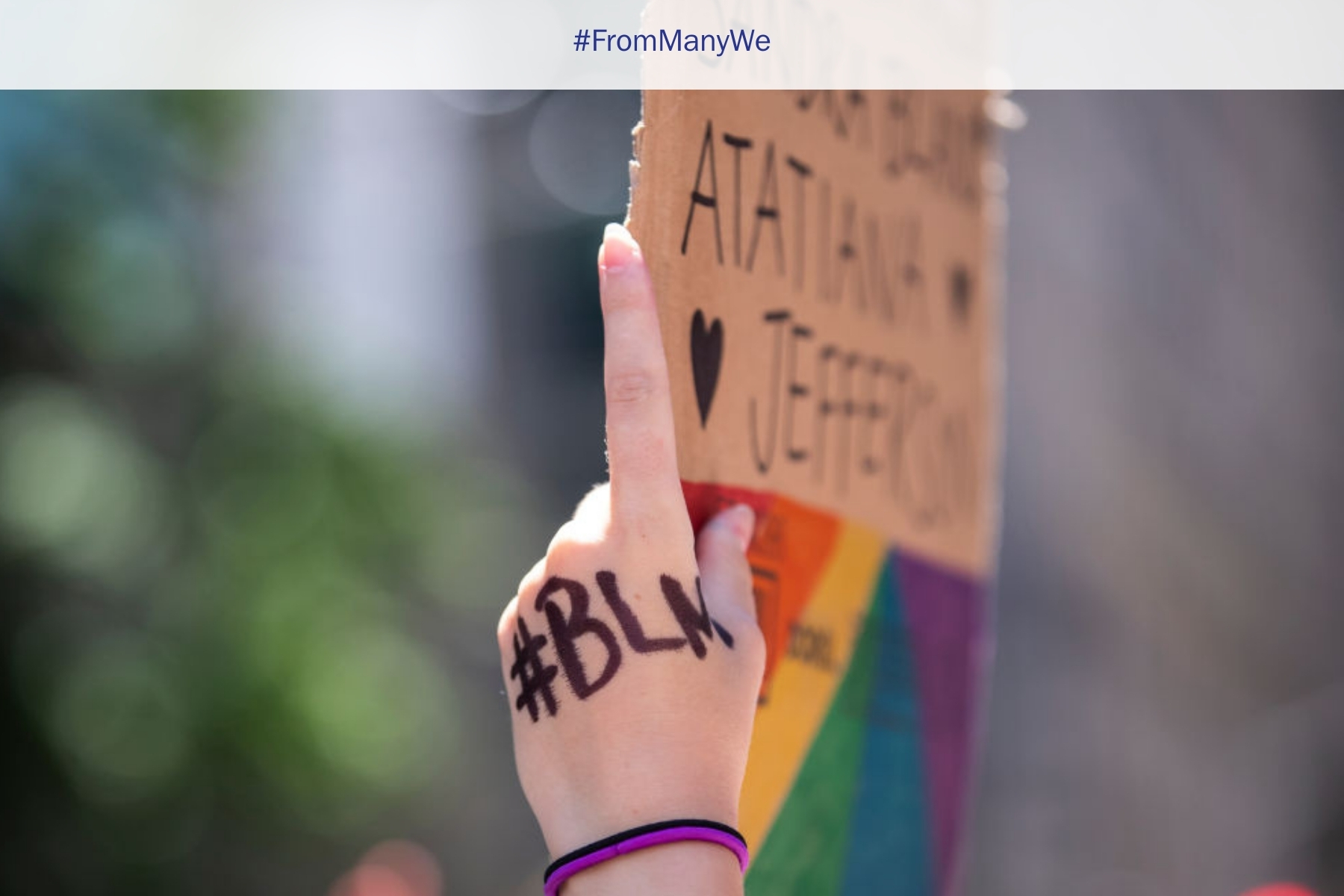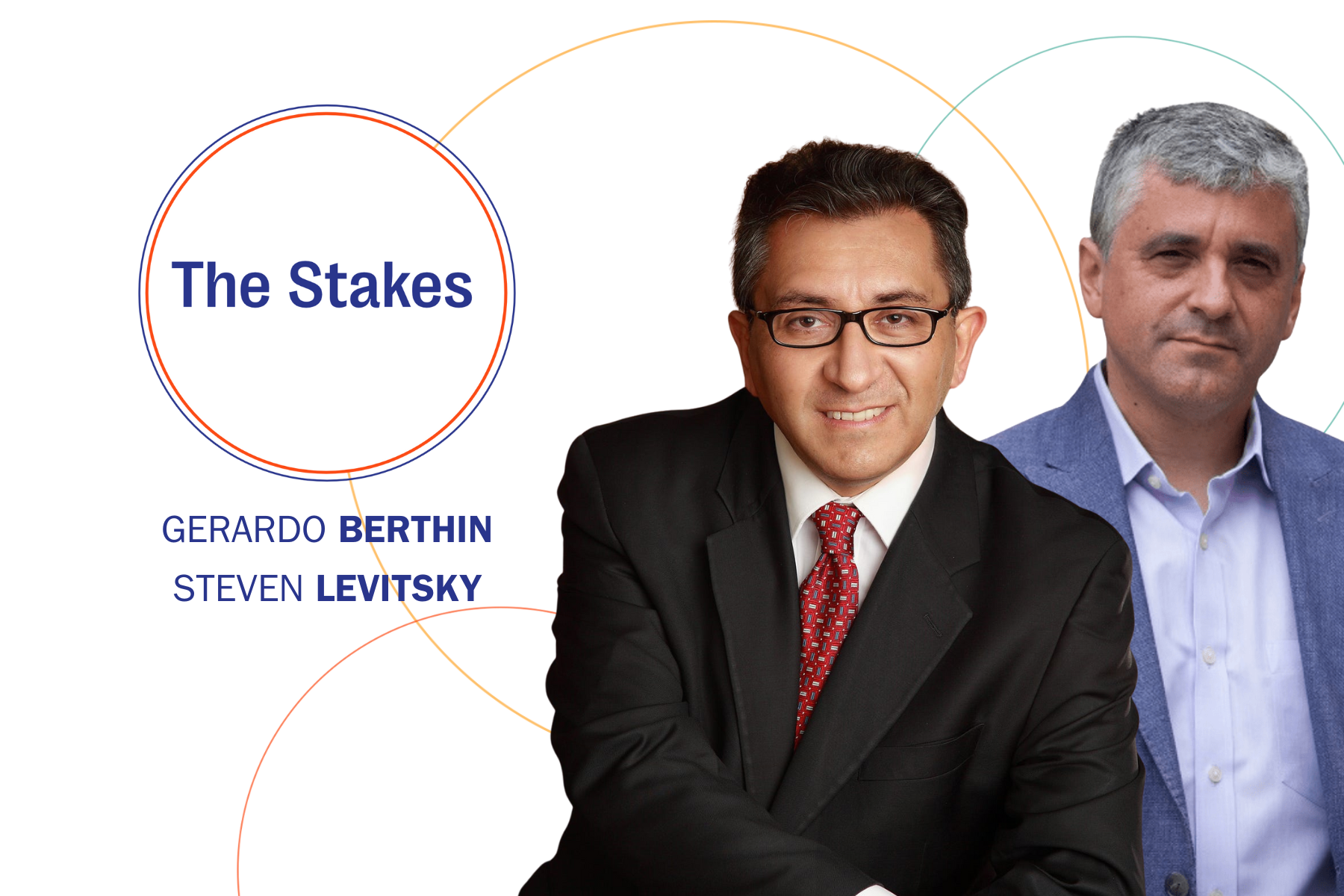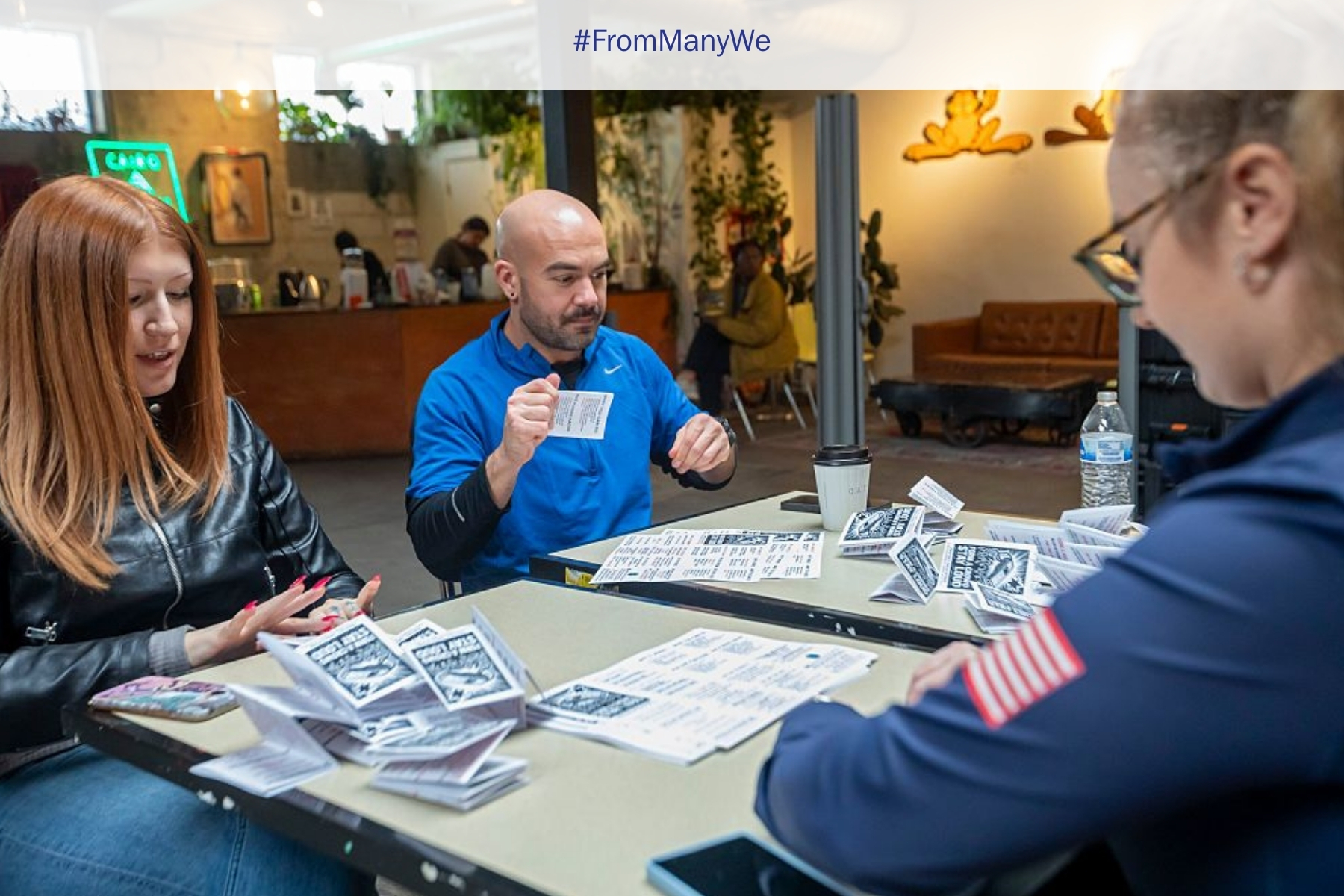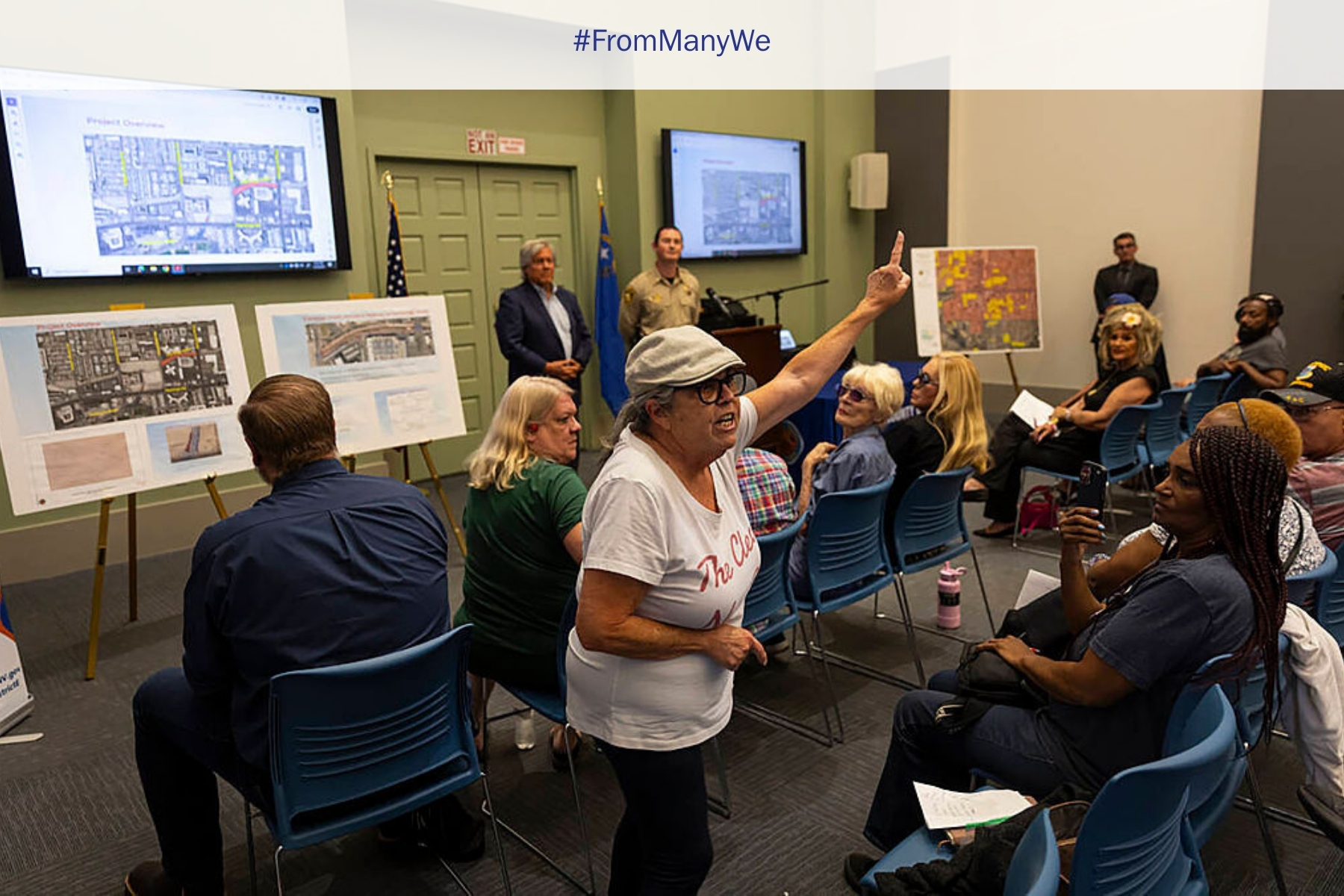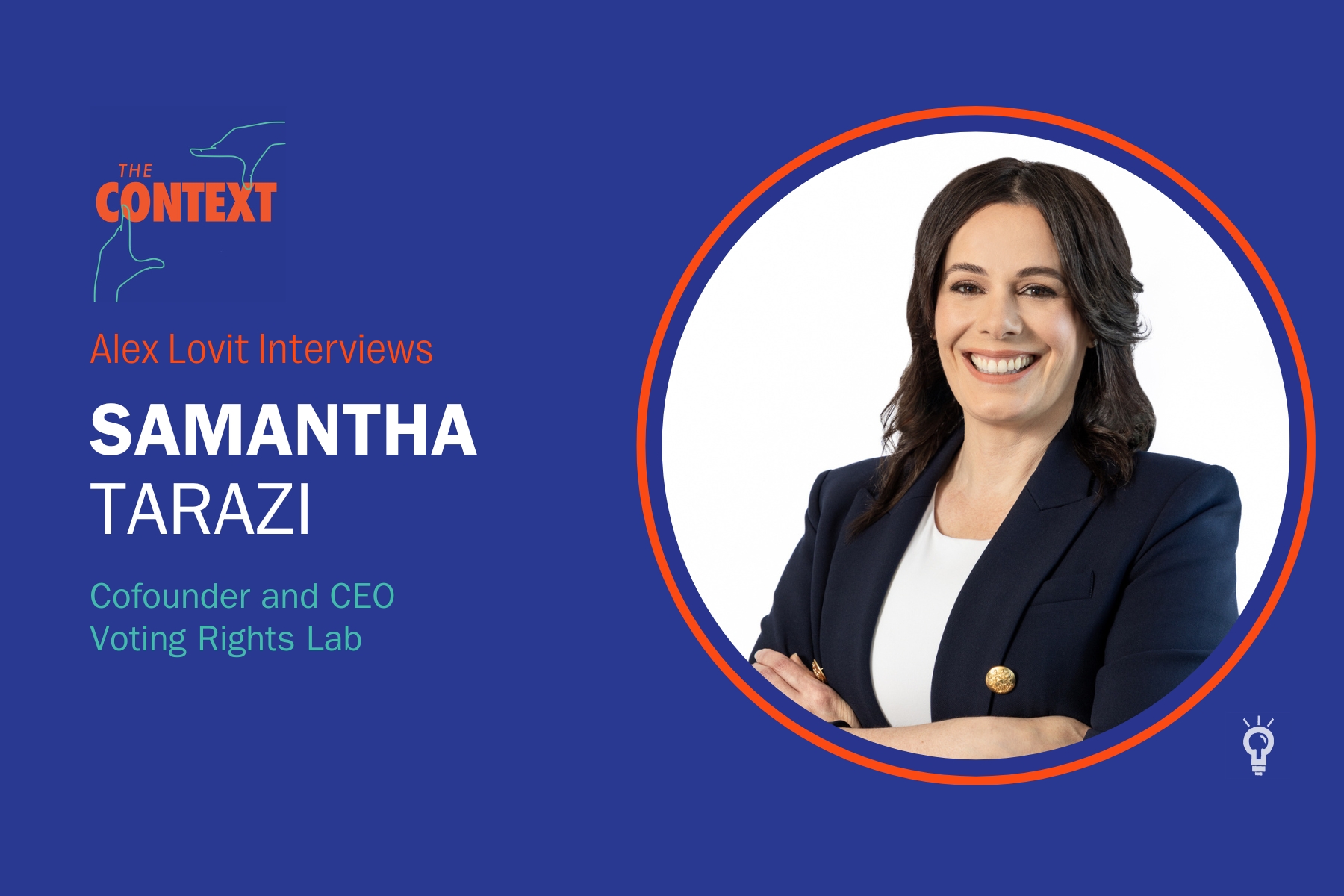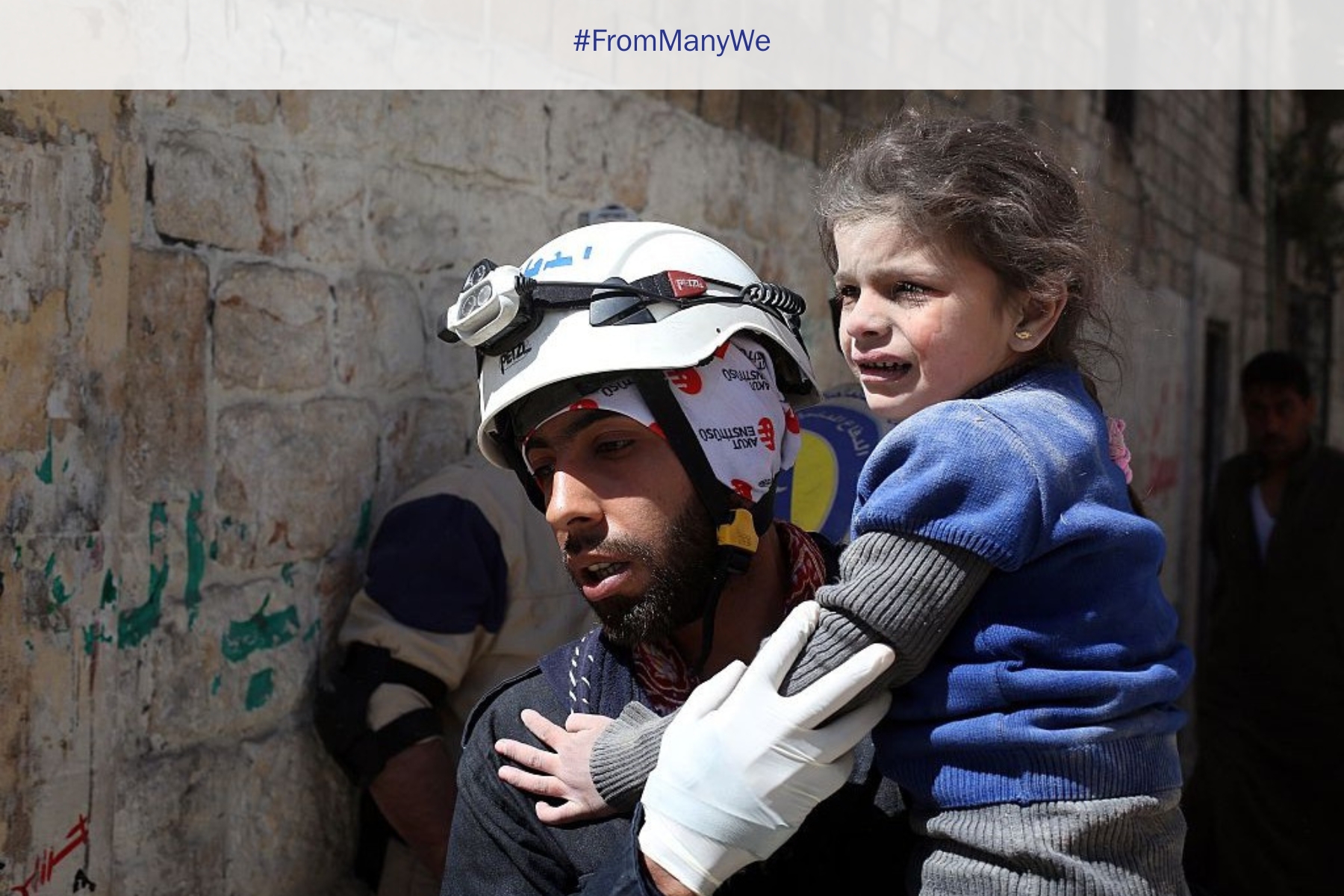What Jeff Bezos Missed: Newspapers Cannot Be Neutral About Democracy
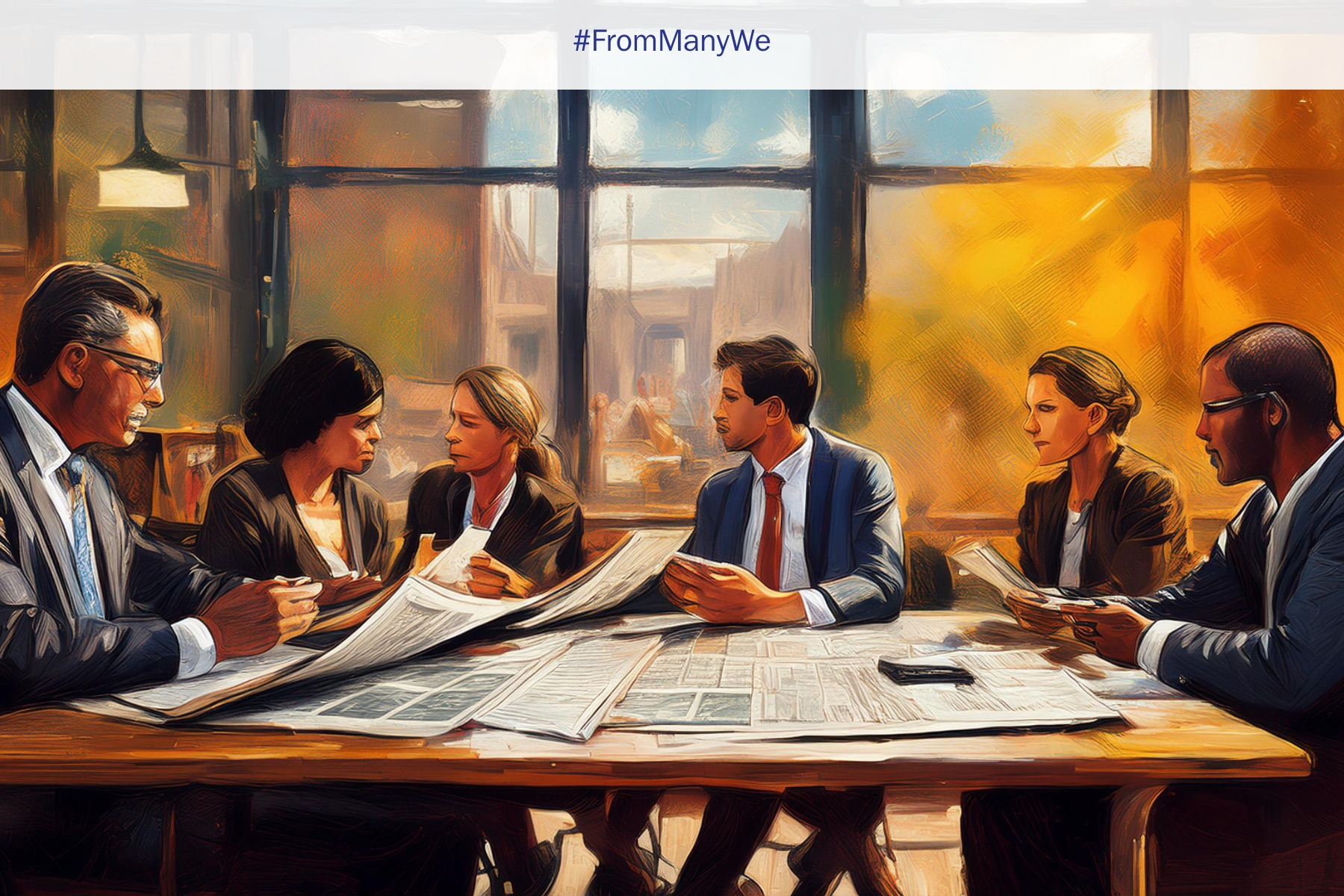
The 2024 election is decided, but the question of how journalistic media organizations decide to endorse presidential candidates is not going away. After yanking the presidential endorsement of The Washington Post’s editorial board, Jeff Bezos, the world’s third wealthiest person and owner of the paper, wrote a full-throated defense of his decision. But Bezos used the wrong framework. By claiming to mitigate the perception of bias, Bezos failed to recognize the stakes of this election for American democracy and the responsibility of journalism to stand for it. There is an alternative. Using a minimum set of standards, news media and civil society organizations can assess candidates on their alignment with democracy while remaining nonpartisan on policy.
Bezos framed his entire argument on three prongs: Americans’ failing trust in the press, the perception of endorsements as bias that would further exacerbate the trust deficit, and the idea that “those who fight reality lose.” By reality, Bezos refers to: “Most people believe the media is biased.” He argues that non-endorsements would reduce the perception that the media is biased, and this would be the first step toward regaining trust with Americans.
Qualifying the Political Field Using a Bare Minimum Definition of Democracy
In an earlier article on NBC’s decision to hire and fire Ronna McDaniel, I laid out the need for news media organizations to have a qualifying standard to vet political actors in a democracy. I cited three principles used by political scientists: Universal adult suffrage (the right of every adult citizen to vote in elections), free and fair elections, and the protection of civil liberties. (A commitment to free elections would include accepting the verdict of a fair election.)
Imagine that Bezos had applied these three standards to both leading presidential nominees. For the moment, even though some will dispute this, let us assume universal adult suffrage is supported by both major candidates. We are then left with two basic criteria: free and fair elections and protections of civil liberties. How do the candidates rank on these two standards?
Free and fair elections: Donald Trump fails because of his well-documented effort to overthrow the result of the 2020 election. And importantly, in doing so, he rejected the popular will of the people. Kamala Harris clears this standard in all the elections she won previously up to 2024, from district attorney to attorney general to US senator to vice president of the US.
Protection of civil liberties: Donald Trump’s clearly documented intent to prosecute or use military force against “the enemy from within” is a clear warning that he will discourage dissent. Leaders from his own former administration have pointed this out, the most recent example being John Kelly, his ex-chief of staff. Without the protection of civil liberties for every citizen, the government of the day can silence all opposition. Democracy ends, and we would have entered a tyranny. Harris’s stated position on this, and her prior record, is the opposite.
Using only the above two criteria, media organizations that claim to be a bulwark for democracy could coherently use their institutional voice to repudiate candidates such as Donald Trump. In fact, these minimum standards are inherently nonpartisan, and a wide range of civil society organizations, not just the journalistic media, can use them to qualify and assess political actors.
An Unfounded Framework
In deciding that The Washington Post must not endorse either of the candidates, Bezos drew up a framework of justification that connected the overloaded words trust, bias, and credibility to argue for neutrality.
Neutrality has a role in journalism when the facts are legitimately in dispute. Fact-finding and diverse sourcing need to determine the truths on the ground. Diversifying and democratizing sourcing is a better mitigator of the biases in journalism that can lead to inaccuracy and distrust. However, once the facts are settled, the institutional endorsements of political candidates founded on those facts are justifiable as judgments. Using the journalistic ethic of neutrality to avoid the perception of bias undermines the critical democratic role of the news media. For example, imagine journalists treating the events of January 6, 2021, and the lie that the election was stolen, as valid opinions so as to appear neutral.
Furthermore, Bezos did not bring up the word democracy once in his opinion. His newspaper even has the word democracy in its slogan: “Democracy Dies in Darkness.” For the paper’s owner to not bring up this word at all is a real pity a giveaway that democracy’s standards did not seem to matter. Not telling the truth about candidates when they fail to meet democracy’s minimum and nonpartisan standards appears to only hasten the darkness.
Overstated: Media Bias, Endorsements, and Trust
Even on the question of bias and endorsements, the reality is not as categorical as Bezos makes out. In a 2011 paper, scholars Chung-Fang Chiang and Brian Knight found that endorsements for the Democratic candidate from left-leaning newspapers are less influential than endorsements from neutral or right-leaning newspapers, and likewise for endorsements for the Republican. They also found that endorsements are more influential among moderate voters.
In other words, news readers are sophisticated and complex people. They know the alignment between their political leanings and a newspaper’s, and they account for it.
The reality is that the traditional ethics framework that guides mainstream journalism has not helped legacy news organizations earn trust across diverse American publics. Many efforts are ongoing to help newsrooms reconnect with audiences and earn trust. For example, diversifying sources may be more promising than attempting to continue the failed neutrality model.
So, the idea that neutrality will enable Americans as a general group to regain trust in the news media, particularly on elections coverage, is a fallacy, and no reason to back away from institutional endorsements.
The Reality of Failing Media Trust or Failing Democracy?
By elevating failing trust in the news media as the top reality at stake, Bezos fails to recognize the more critical and imminent reality that America is at risk of losing the basic components of a viable democracy. No one claims that the three minimum standards described above were ever enough for a multiracial, pluralistic, liberal democracy, given our long history of exclusion and discrimination. But one of the candidates in the 2024 presidential race failed to meet even this most basic test.
Bezos’s framework completely ignores this reality because it misses the critical connection between journalistic institutions and democratic culture. His understanding, it appears, is that journalistic organizations must be seen as nonpartisan, and their editorial boards must also not subscribe to any core democratic standards, such as the ones I laid out above. The press only exists because of democracy, and it is protected through the freedom it gets through law. Individual journalists are, and ought to be, expected to draw the line over political actors who consistently show that they are incompatible with democracy. This is only possible when an ethical press applies a minimum set of standards when it is time to use its institutional voice.
Subramaniam (Subbu) Vincent is director of the Journalism and Media Ethics program at the Markkula Center for Applied Ethics at Santa Clara University. He focuses on developing tools and frameworks to help advance new norms in journalism practice and ethical news distribution.
From Many, We is a Charles F. Kettering Foundation blog series that highlights the insights of thought leaders dedicated to the idea of inclusive democracy. Queries may be directed to fmw@kettering.org.
The views and opinions expressed by contributors to our digital communications are made independent of their affiliation with the Charles F. Kettering Foundation and without the foundation’s warranty of accuracy, authenticity, or completeness. Such statements do not reflect the views and opinions of the foundation which hereby disclaims liability to any party for direct, indirect, implied, punitive, special, incidental, or other consequential damages that may arise in connection with statements made by a contributor during their association with the foundation or independently.
